When a healthy food product is brought to our attention, we often wonder if it’s safe for our pets too. Milk alternatives, such as soy and almond milk, offer consumers a new and healthier alternative to regular cow’s milk.
As almond milk gains popularity in households around the world, it is only natural to ask yourself, can cats drink almond milk?
The answer is yes, cats can have almond milk, but only in moderation.
Almond milk is considered safe for your cat as an occasional treat. If you notice your cat developing side effects and having a negative reaction to almond milk, it may be because they drank too much or simply because it is new to them.Quick Overview: Can Cats Drink Almond Milk?
Toxic: No
Commonly Allergenic: Yes
Species Appropriate: Yes
How Often to Feed: Occasional
How Much to Feed: Supplemental
Summary of Content
Is Almond Milk Safe for Cats?
While almond milk can be a good source of some vitamins and minerals, it’s not a beneficial addition to your cat’s diet.
Despite the myth that cats love milk, they actually cannot digest milk as humans do. Cats don’t produce many lactase enzymes that are required to digest milk, which results in the symptoms of lactose intolerance, commonly vomiting or diarrhea.
For cats who love milk but can’t digest lactose, almond milk presents a promising alternative. That said, this nut-based milk can be irritating for some sensitive bellies. Cats should only drink almond milk in moderation.
Additionally, be sure to check the label to make sure the almond milk brand is safe for your cat. Flavored almond milk may contain artificial sweeteners, flavorings, and preservatives that can give your cat an upset stomach. If you choose to give your cat almond milk as a treat, opt for unsweetened almond milk without added flavors.
The Benefits of Almond Milk for Cats
Almond milk is not an ideal source of nutrition for cats, but it does have some benefits as an occasional treat.
Almond milk is lactose-free, which makes it a fair alternative for cats who have difficulty digesting milk enzymes.
Almond milk is loaded with vitamin E, which helps to nourish your cat’s coat and skin. Another benefit of vitamin E is its anti-inflammatory properties, which help with skin conditions like eczema. The potassium in almond milk aids in cellular function and magnesium helps with bowel movements and urinary problems.
Also Read: The 5 Best Cat Vitamins And Supplements
How Much Almond Milk Can Cats Have?
Whenever you give your cat new human food, it is recommended to start with a small amount and monitor them to see how they react. You can offer a few teaspoons of almond milk to see how your cat reacts. If there was no reaction, you can up the amount.
The cat food you feed your cat will cover their nutritional needs, so giving almond milk as a dietary supplement is unnecessary. The contribution from unbalanced food and treats should be kept to <10% of your cat’s total daily calories.
What Are the Side Effects of Drinking Almond Milk?
Usually, almond milk will only cause health problems if given in large amounts to your cat. Too much almond milk can cause digestive upset and cause:
If your cat experiences any of the symptoms after ingesting almond milk, cut back on the amount and frequency, or leave it out of their diet entirely.
Additional Types of Milk Cats Can Drink
Kittens require the unique balance of nutrients present in their mother’s milk. Anything besides this milk or a specially-formulated cat milk replacer will lead to nutritional deficiencies.
If you just can’t help yourself from sharing a drink with your cat, make sure you are giving them milk that is the safest and least likely to cause them problems.
- Plant-based drinks –There are many non-dairy milk options available today. Almond milk or other plant-based milk options such as coconut, soy, oat, and rice don’t contain lactose and are typically lower in fat and calories than regular cow’s milk. Be sure to read the label and avoid options with sweeteners, artificial flavors, and preservatives.
- Lactose-free dairy milk- Lactose-free milk is cow’s milk with the lactose removed. This is an ideal milk alternative for cats with lactose intolerance or allergies.
- Goat, sheep, and cow’s milk – If you’re looking for a lactose alternative to cow’s milk, consider goat, sheep, or other animal milk. These options contain lactose(but at lower levels than cow’s milk), so they can still cause stomach upset. If finding milk that is high in omega-3 fatty acids is important to you, opt for organic cow’s milk as it has 62% higher omega-3 than regular milk.
Read More: Is Milk Good for Cats?
If you’re having trouble finding unsweetened almond milk in your local store, you can always make it right at your home. It is pretty simple and doesn’t require a long list of ingredients.
What Do You Need To Make Almond Milk for Your Cat?
- 1 cup of natural almonds
- 4 cups of spring water
- Blender
- Strainer
- Storage container
For best results, soak the almonds overnight then drain and place them inside a blender. Add the water and blend for one minute, or until smooth. Next, pour the mixture into the strainer over the storage container to remove possible chunks. Refrigerate for up to 5 days and enjoy!
Types of Milk To Avoid
You should think twice about giving your cat milk products, however, the following should be avoided even in small amounts.
- Condensed milk – This type of milk is high in fat and sugar and can cause abdominal discomfort.
- Cream, including whipped cream – Whole milk is too rich and heavy for a cat’s digestive tract.
Conclusion
Almond milk is considered safe for your cat as an occasional treat. If you notice your cat developing side effects and having a negative reaction to almond milk, it may be because they drank too much or simply because it is new to them.
If you decide to offer it, almond milk should be used as an occasional treat only and should not be relied on for nutritional benefits for your cat.
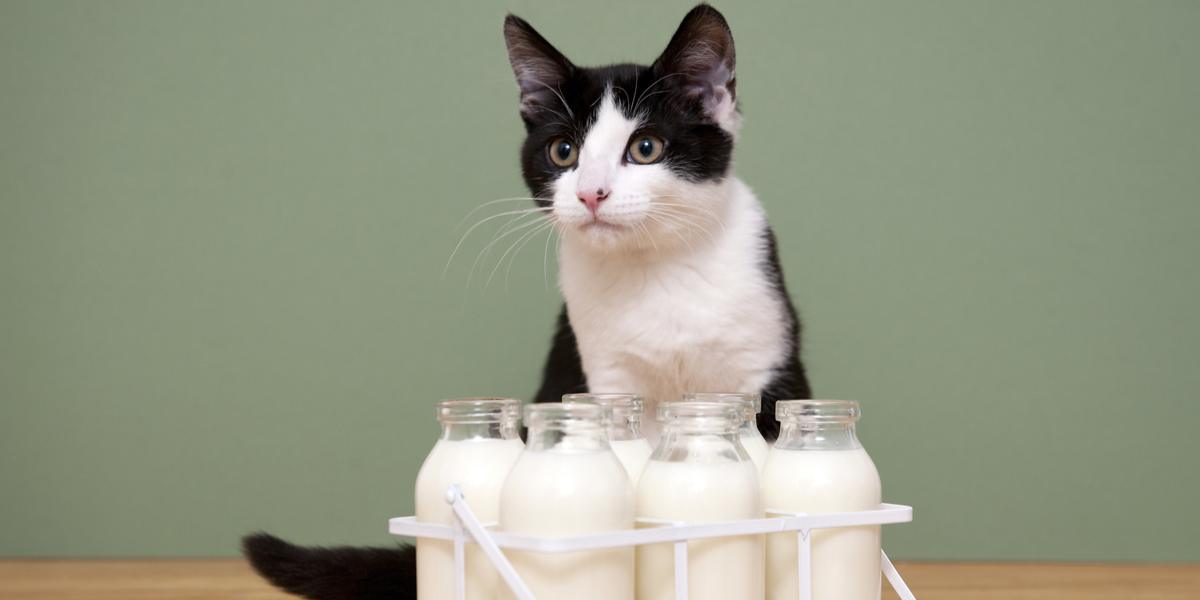
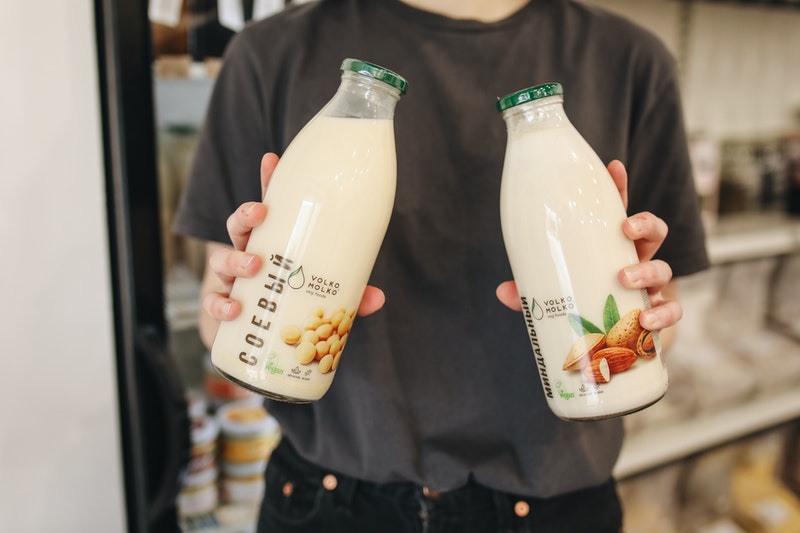
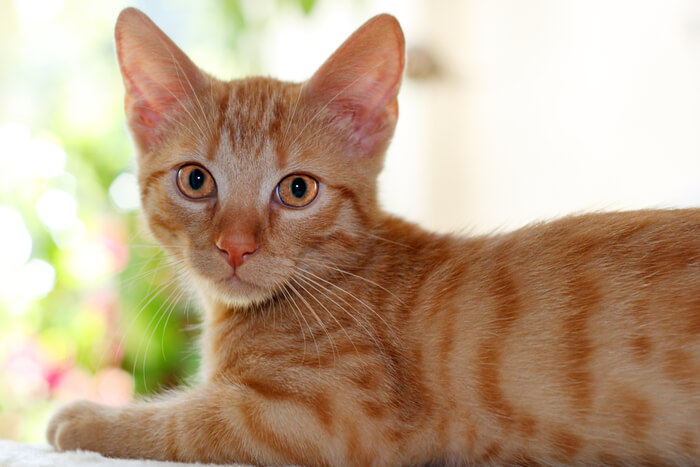
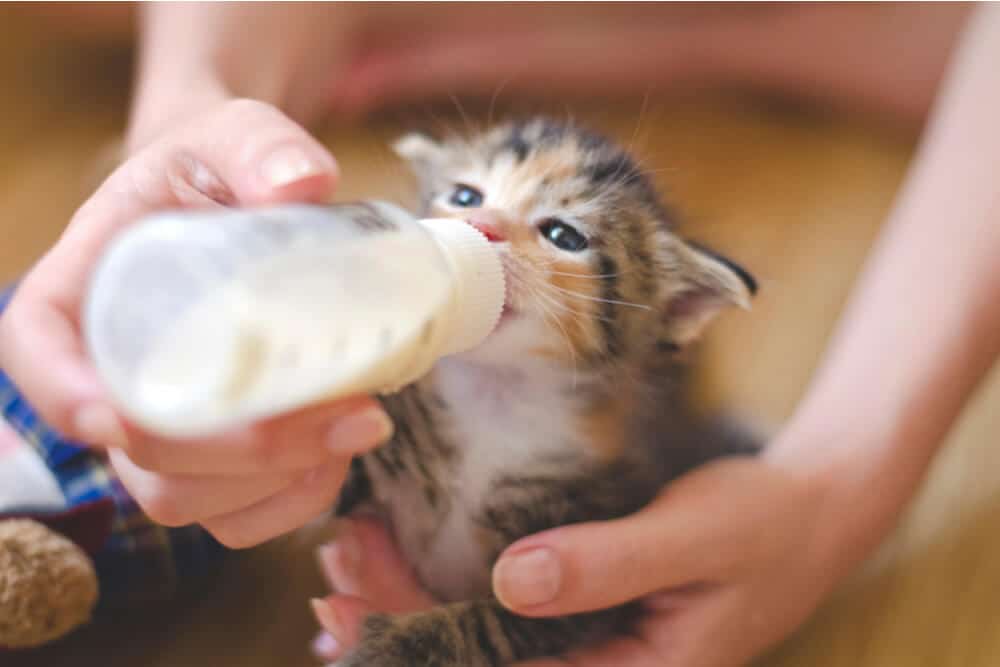
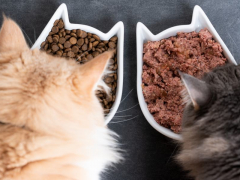
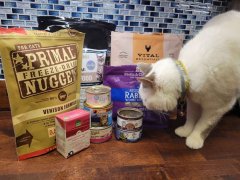
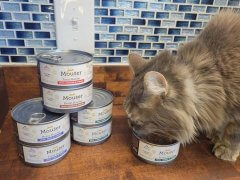
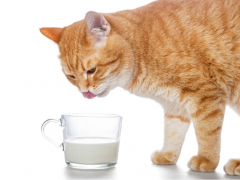

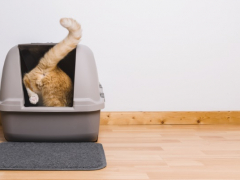
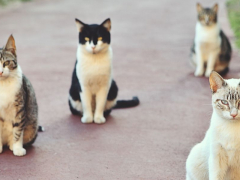

Can a older cat haver that milk also
The information in this article applies to cats of all ages.